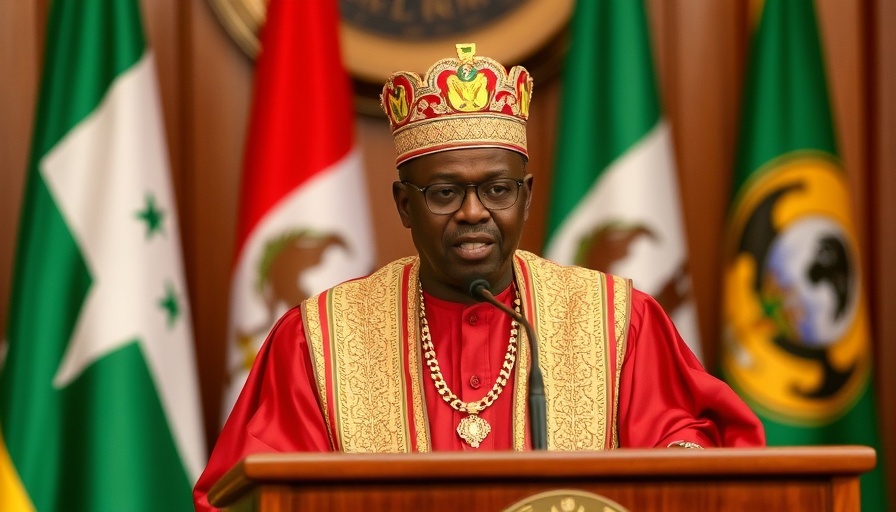
Guinea's Path Towards Democratic Elections: A Timeline of Transition
In a significant move aimed at bolstering investor confidence, Guinea's Prime Minister, Bah Oury, announced elections will be held in December 2025. This proclamation marks a vital juncture for a nation that has faced political upheaval since a military takeover in September 2021. The announcement was made at the Africa CEO Forum in Abidjan, Ivory Coast, where Oury emphasized the importance of the upcoming Simandou iron ore project as a catalyst for economic revitalization.
The Significance of the Simandou Project
The Simandou project is expected to generate substantial revenue for Guinea, playing a crucial role in the nation's recovery from political instability. The Prime Minister's assurance that "Simandou’s first train will arrive before the elections" underscores the government's strategy to leverage major infrastructure projects to regain public trust and foreign investments.
Contextualizing the Timeline of Change
The newly established timeline also includes a constitutional referendum set for September 21, 2025. This constitutional amendment is viewed as a necessary foundation for the elections and an essential step towards restoring constitutional governance in Guinea. The draft constitution unveiled last July hints at potential changes in leadership structures, which might allow military leader Mamady Doumbouya to pursue a presidential bid.
Impact on Political Landscape and Economic Stability
As political parties engage in this transitional phase, the current climate is tense. Two former ruling parties remain suspended, while the opposition party, the Union of Democratic Forces of Guinea, has been placed under close surveillance. The government's approach to maneuver through these political intricacies will critically shape Guinea's governance framework and affect foreign relations, particularly its ties with investors invested in Africa's evolving economic landscape.
Conclusion: Navigating Forward
As Guinea prepares for a pivotal transition toward democratic elections, the actions taken by the military government in the coming months will be scrutinized both locally and globally. Investors and analysts alike will be monitoring the developments closely, given Guinea's substantial mineral wealth and strategic position in West Africa’s economy. It is essential for stakeholders to remain engaged and informed about Guinea's governance policies and their impacts on the broader African landscape.
 Add Row
Add Row  Add
Add 


 Add Row
Add Row  Add
Add 

Write A Comment